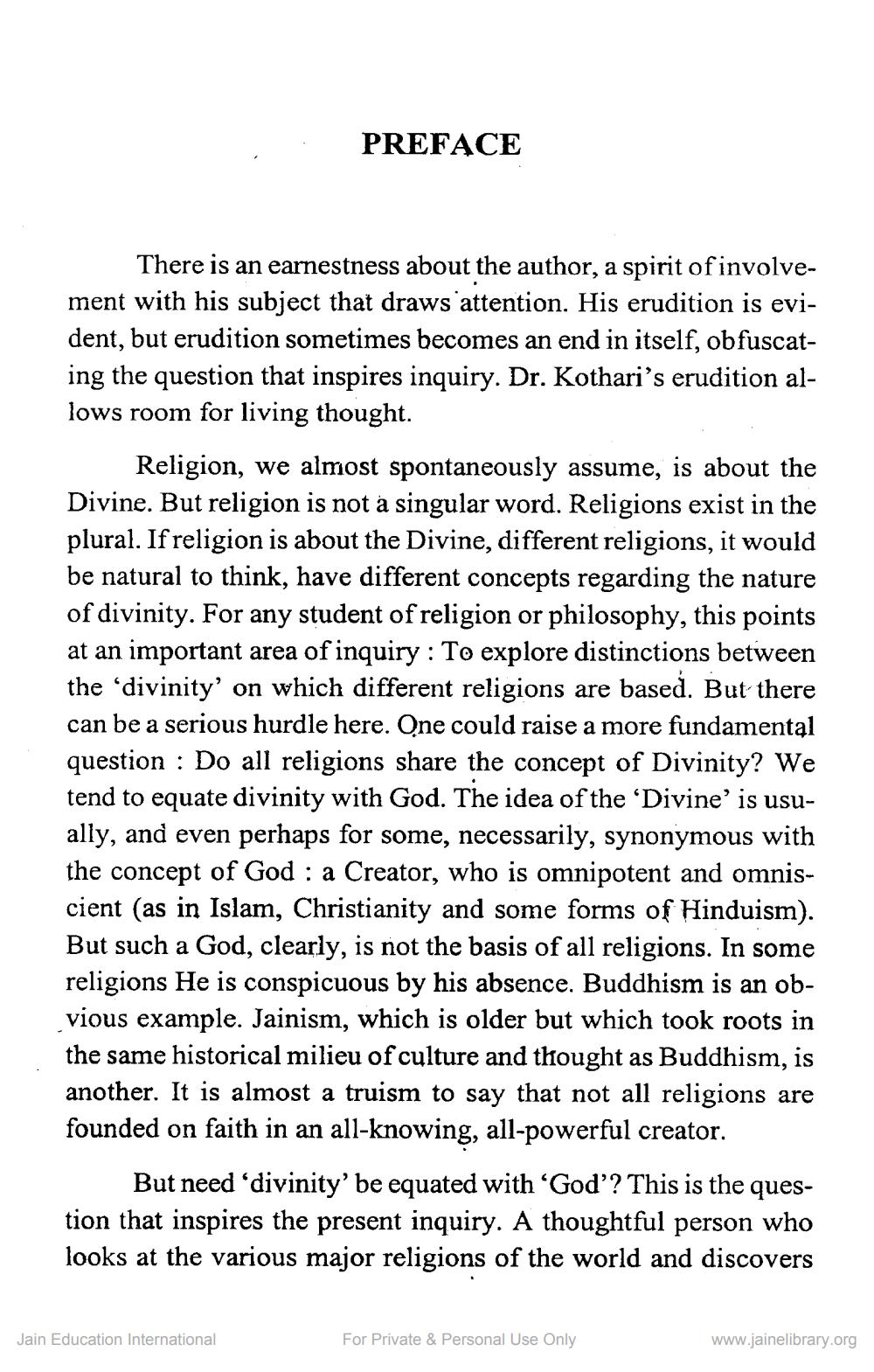________________
PREFACE
There is an earnestness about the author, a spirit of involvement with his subject that draws attention. His erudition is evident, but erudition sometimes becomes an end in itself, obfuscating the question that inspires inquiry. Dr. Kothari's erudition allows room for living thought.
Religion, we almost spontaneously assume, is about the Divine. But religion is not a singular word. Religions exist in the plural. If religion is about the Divine, different religions, it would be natural to think, have different concepts regarding the nature of divinity. For any student of religion or philosophy, this points at an important area of inquiry : To explore distinctions between the 'divinity' on which different religions are based. But there can be a serious hurdle here. One could raise a more fundamental question : Do all religions share the concept of Divinity? We tend to equate divinity with God. The idea of the ‘Divine' is usually, and even perhaps for some, necessarily, synonymous with the concept of God : a Creator, who is omnipotent and omniscient (as in Islam, Christianity and some forms of Hinduism). But such a God, clearly, is not the basis of all religions. In some religions He is conspicuous by his absence. Buddhism is an obvious example. Jainism, which is older but which took roots in the same historical milieu of culture and thought as Buddhism, is another. It is almost a truism to say that not all religions are founded on faith in an all-knowing, all-powerful creator.
But need divinity' be equated with ‘God'? This is the question that inspires the present inquiry. A thoughtful person who looks at the various major religions of the world and discovers
Jain Education International
For Private & Personal Use Only
www.jainelibrary.org




